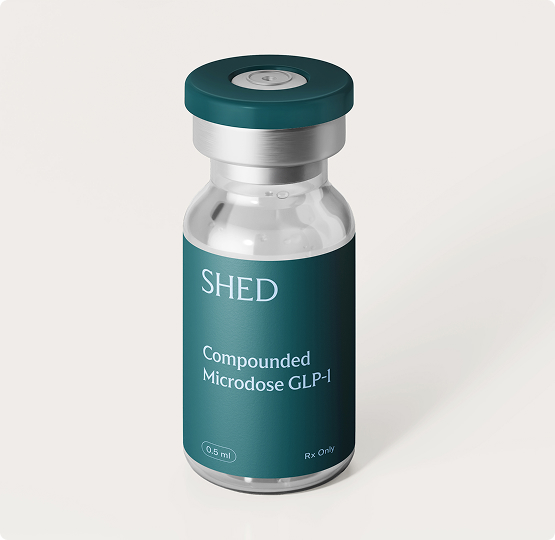We live in a time where our bodies speak to us through more channels than ever before. Our watches track our sleep, heart rate, stress levels, and recovery. Apps count our steps, calories burned, and even breathing patterns. Social media shows us health influencers, other people’s lab results, personal health journeys, diagnoses, and fears, all surfaced by an algorithm trained to keep us looking.
This access can be empowering. It can also quietly fuel health anxiety.
Health anxiety isn’t simply “worrying too much.” It often comes from deeply caring about your well-being. But when our minds fixate on biometric numbers, symptom-searching, or worst-case scenarios, that concern can turn into overwhelm. The reality is, baseline changes in heart rate, sleep, mood, digestion, and energy are part of being human. Your body is dynamic, not mechanical.
The goal is not to ignore your health. The goal is to stay grounded in reality, use data wisely, and build trust in your body rather than fear.

The data dilemma: When information becomes noise
Wearables can be powerful tools, but they can also turn normal fluctuations into danger alarms in our minds. For example:
- Heart rate varies with stress, hydration, hormones, and sleep.
- Deep sleep changes week to week depending on training, meals, and stress load.
- Workout strain shifts because your body adapts; this is a sign of fitness, not failure.
- Digestion can fluctuate based on travel, fiber intake, menstrual cycle, and immunity.
Your body is constantly adjusting to life. Biometric changes don’t automatically signal danger; sometimes they signal growth, recovery, or simply the human experience.
Action prompt: Choose one metric to focus on for the next 14 days and ignore the rest. Track how you feel, not just what your device says. Journal daily with:
- How did I sleep?
- How is my energy?
- What is my stress level?
- How does my body feel after movement?
Data should serve you, not scare you.
Social media and the symptom spiral
Humans naturally mirror what we consume. If your feed is filled with stories of illness, fatigue, rare symptoms, or health crises, your brain begins scanning your body for similar signs.
Furthermore, in today’s wellness space, many health conversations are shaped by influencers rather than trained health professionals. While personal stories can feel relatable and inspiring, they often lack clinical context and can blur the line between individual experience and evidence-based guidance.
For example, influencers may share extreme routines, hyper-focus on isolated biomarkers, or present biohacking experiments as a universal truth, which can unintentionally create anxiety or confusion around what “normal” health looks like.
Your baseline is influenced by genetics, history, environment, stress, hormones, and countless daily variables; it cannot be defined by someone else’s wearable readout, supplement stack, or morning routine. Curate your inputs thoughtfully. Credibility matters—and your health shouldn’t be modeled on someone else’s anecdote.
Action prompt: Curate your feed. For one week:
- Unfollow or mute accounts that trigger worry.
- Follow accounts focused on recovery, resilience, science, movement, nourishment, and calm.
- Set a 20-minute daily limit on health-related content.
You are in charge of what enters your nervous system.

Google is not a doctor, and anxiety can mimic illness
When you google your symptoms, you’re more than likely to see the catastrophic explanations first. Anxiety about your health can lead to:
- Chest tightness
- Rapid heartbeat
- GI discomfort
- Dizziness
- Tingling or muscle tension
- Trouble sleeping
These sensations are real, but that doesn’t mean they’re caused by the illness you’re googling. Google cannot reassure you because the algorithm is not designed to soothe—it’s designed to capture attention.
Action prompt: Commit to a “no-google” rule for symptoms. If a concern lasts longer than 72 hours or worsens significantly, speak with a healthcare provider instead.
Building trust in your body again
Your body is not fragile. It adapts, recovers, and responds to your environment. Rebuilding trust takes practice and patience.
Try this grounding framework:
- Observe
“What am I feeling right now? Where in my body?” - Question
“What else could be causing this stress—caffeine, hormones, fatigue?” - Reality check
“Has this happened before? Did it resolve?” - Act
Support your body instead of spiraling: hydration, breathwork, movement, balanced meals, rest. - Seek care when appropriate
If something feels truly new, severe, or persistent, reach out to a clinician.
Choose empowerment over vigilance
Health anxiety often comes from wanting certainty in a world where uncertainty exists. The goal isn’t to eliminate awareness, but to build confidence. Your body is allowed to fluctuate, recover, and surprise you.
You can be informed without being hypervigilant. You can care without catastrophizing. You can use data as support, not proof of danger.
And when worry rises, remember:
- You are not alone
- Bodies are dynamic
- Rest is productive
- Curiosity is more effective than fear
- Being human means being in motion, not in perfect control
Health is measured through more than just numbers; it's built through balance, compassion, and trust.
Knowing when to seek care is part of empowered health, not a sign of worry or weakness. If a new or unusual symptom appears and does not improve after a few days or begins to interfere with your daily life, it’s appropriate to check in with a clinician. The goal is not to avoid medical care or seek constant reassurance, but to find a balanced rhythm of listening to your body and getting help when it feels aligned and necessary.
FAQs: Navigating health anxiety in the age of data and comparison
What is health anxiety, and how is it different from general anxiety?
Health anxiety involves persistent worry about having or developing a serious illness, even when medical reassurance suggests otherwise. Unlike general anxiety, which can affect many areas of life, health anxiety often centers on bodily sensations, symptoms, and health-related data. It’s common among people who care deeply about their well-being.
Can wearable health devices increase health anxiety?
It can for some people. While smartwatches and fitness trackers can provide valuable insights, they can also trigger health anxiety when normal fluctuations—like a higher heart rate after coffee or poor sleep after a stressful day—are misinterpreted as warning signs. The key is to use data as a guide, not a diagnosis, and to focus on patterns over time rather than daily variations.
How can I tell if my health data is showing something serious?
Look for consistent, significant changes rather than temporary shifts. You know your body, so if something feels new, lasts longer than a few days, or interferes with your daily life, then it may be time to discuss your concerns with a doctor.
Why does social media make my health anxiety worse?
Social media exposes you to others’ health journeys, diagnoses, and stories, and the algorithms push the most attention-grabbing content—which is often the most negative—to the top of your feed. Seeing this content day after day can heighten your own bodily awareness and worry. Unfollow accounts that spark fear and stick with those that promote calm, science-based wellness, and recovery.
How do I stop googling my symptoms?
Your body has more useful information to give you than Google does. It may be hard at first, but you’ll be much better off paying attention to what’s happening in your body, not what’s on the internet. If you notice something is off, track your symptoms for a few days and take care of your body with plenty of hydration, rest, and nutrition. If symptoms persist or get worse, schedule an appointment with your doctor and be ready to share what you’ve observed.
What does healthy self-awareness look like in the digital age?
Healthy self-awareness means using data and information to support—not define—your well-being. It’s all about paying attention to your body, noticing patterns, and getting your health information from credible sources. Balance is important, too. You can be informed without being hypervigilant, connected without overcomparing, and data-driven without losing trust in your own intuition.
References
doi: 10.3389/fpsyt.2024.1489427 Rising global burden of anxiety disorders among adolescents and young adults: trends, risk factors, and the impact of socioeconomic disparities and COVID-19 from 1990 to 2021Fengsai Bie 1,†, Xiaoling Yan 2,†, Jie Xing 3, Leilei Wang 4, Yang Xu 1, Guan Wang 5, Qian Wang 6, Jinyu Guo 1, Jing Qiao 7, Zhenzhen Rao 8,*
Mayo Clinic Proceedings: Digital Health. 2023 Aug 9;1(3):413–418. doi: 10.1016/j.mcpdig.2023.06.014
Wear With Care: A Call for Empirical Investigations of Adverse Outcomes of Consumer Health Wearables Deanna M Kaplan a,b,c, Morgan Greenleaf a,e, Wilbur A Lam a,d,f,∗
Helpful or harmful? Navigating the impact of social media influencers’ health advice: insights from health expert content creators
https://bmcpublichealth.biomedcentral.com/articles/10.1186/s12889-024-21095-3
.svg)









